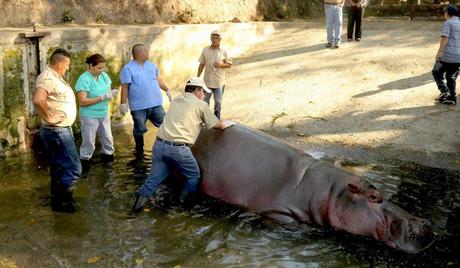El Salvador is the smallest and the most densely populated country in Central America. El Salvador for centurieswas inhabited by several Mesoamerican nations, especially the Cuzcatlecs, as well as the Lenca and Maya. In 1821, the country achieved independence from Spain as part of the First Mexican Empire, only to further secede as part of the Federal Republic of Central America in 1823. Persistent socioeconomic inequality and civil unrest culminated in the devastating Salvadoran Civil War (1979–1992), which was fought between the military-led government and a coalition of left-wing guerrilla groups. El Salvador's economy was historically dominated by agriculture, beginning with the indigo plant, the most important crop during the colonial period. Authorities in El Salvador dismantled a MS13 network allegedly dedicated to forcing women into marriages before assassinating the husband to collect insurance money, a scheme that speaks to the gang's growing business sophistication.Three women, who are allegedly members of a MS13 structure dubbed "Black Widows," were arrested on February 24 and given pre-trial detention on February 27, reported La PrensaGráfica. According to a February 24 press release by the Attorney General's Office, the suspects are facing charges of aggravated human trafficking, intent and conspiracy to commit first degree murder, aggravated fraud and criminal association. Five other suspects are still at large. The case was built on testimony from two victims in 2014 and 2016. These women described how they were kidnapped in a house after accepting a job as a cleaning lady from members of the criminal structure. They were then forced into marrying a man, who himself was tricked into believing that the marriage would help them move to the United States. The network would convince the male victim into buying life insurance before eventually assassinating him. The widows were then forced to file paperwork so that the group could collect the insurance money. May be as compared to black-widows, this is not so gruesome – the death of a much-loved hippopotamus called Gustavito after an unexplained attack over the weekend in the National Zoo of El Salvador.The police are trying to establish who entered the animal's enclosure at night and brutally attacked the animal. They said employees of the zoo were among those being questioned.
 Gustavito, 15, died late on
Sunday.Officials have described it as a cowardly and inhumane attack on one of
the most iconic animals at the zoo.Although there are CCTV cameras at the zoo,
none overlook the area where Gustavito was attacked.Locals mourned the hippo,
who was apparently attacked with metal bars and knives, through social media
and by leaving flowers at the national zoo. Even in a country, where murder has
long lost the capacity to shock, the extreme animal cruelty that claimed
Gustavito's life has angered and upset all of El Salvador.
Reportedly, unknown
assailants entered the national zoo in San Salvador over the weekend and
subjected the hippo to a sustained beating with what appears to have been sharp
weapons and blunt tools.The following morning, the zookeepers noticed Gustavito
acting strangely, refusing to eat and unwilling to come out of the pool in his
enclosure.The zoo's veterinarians then found lacerations on the hippo's neck
and face, and the animal clearly in great distress.His condition worsened on
Sunday and he died late that night despite the efforts of the staff to save
him.
Meanwhile many Salvadorans
have taken to social media to express their sadness and disgust at the
case.Many are calling for investigation into conditions at the zoo to determine
how an attack of this nature could happen so easily, while on Twitter others
have simply been posting: "Forgive us Gustavito". The gruesome
killing of an animal that entertained them has reached an unsuspected corner
with the brutal and fatal beating – gruesome is the way and the methodology. Gustavito
was born and raised in Guatemala, but was brought to El Salvador 13 years ago.
With regards – S.
Sampathkumar
Gustavito, 15, died late on
Sunday.Officials have described it as a cowardly and inhumane attack on one of
the most iconic animals at the zoo.Although there are CCTV cameras at the zoo,
none overlook the area where Gustavito was attacked.Locals mourned the hippo,
who was apparently attacked with metal bars and knives, through social media
and by leaving flowers at the national zoo. Even in a country, where murder has
long lost the capacity to shock, the extreme animal cruelty that claimed
Gustavito's life has angered and upset all of El Salvador.
Reportedly, unknown
assailants entered the national zoo in San Salvador over the weekend and
subjected the hippo to a sustained beating with what appears to have been sharp
weapons and blunt tools.The following morning, the zookeepers noticed Gustavito
acting strangely, refusing to eat and unwilling to come out of the pool in his
enclosure.The zoo's veterinarians then found lacerations on the hippo's neck
and face, and the animal clearly in great distress.His condition worsened on
Sunday and he died late that night despite the efforts of the staff to save
him.
Meanwhile many Salvadorans
have taken to social media to express their sadness and disgust at the
case.Many are calling for investigation into conditions at the zoo to determine
how an attack of this nature could happen so easily, while on Twitter others
have simply been posting: "Forgive us Gustavito". The gruesome
killing of an animal that entertained them has reached an unsuspected corner
with the brutal and fatal beating – gruesome is the way and the methodology. Gustavito
was born and raised in Guatemala, but was brought to El Salvador 13 years ago.
With regards – S.
Sampathkumar
1st Mar 2017.

